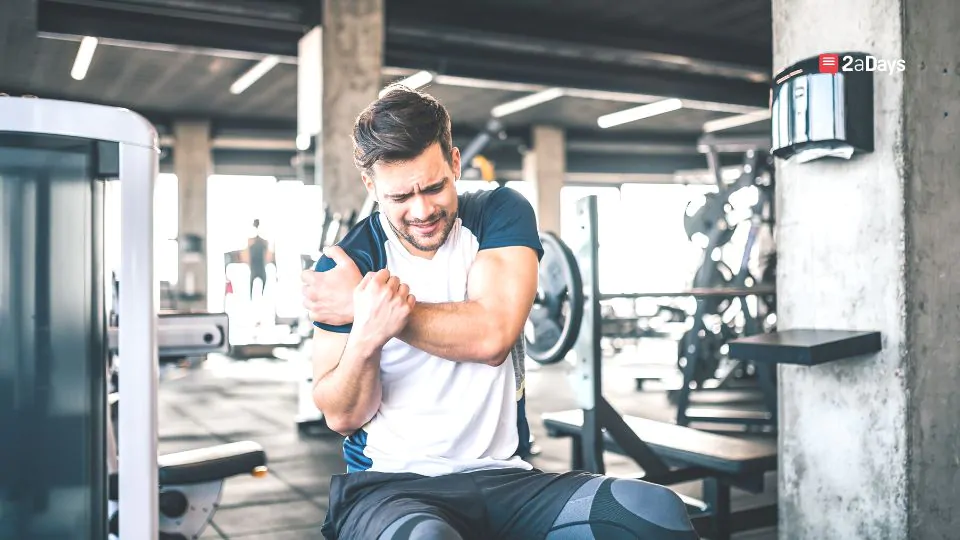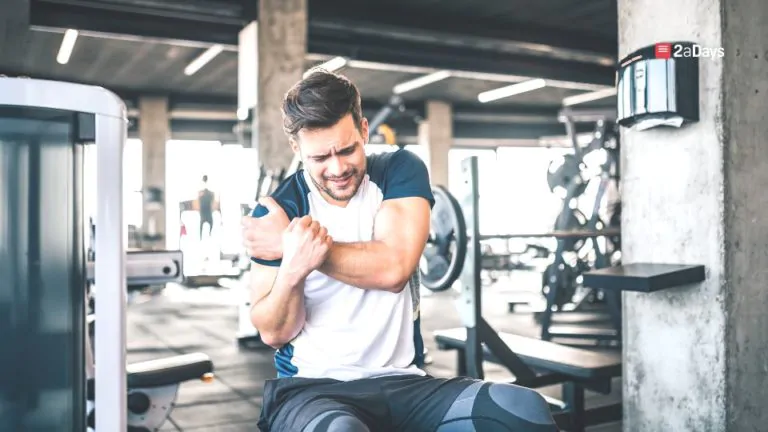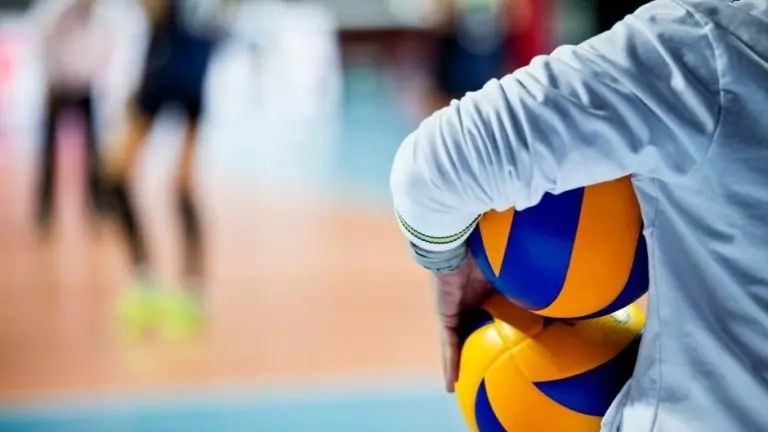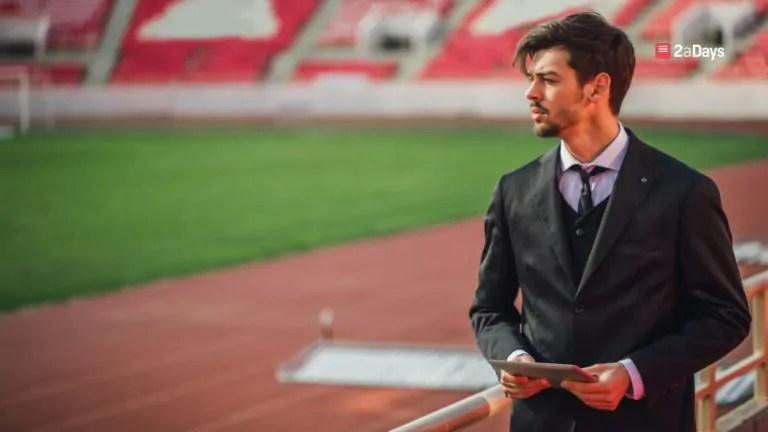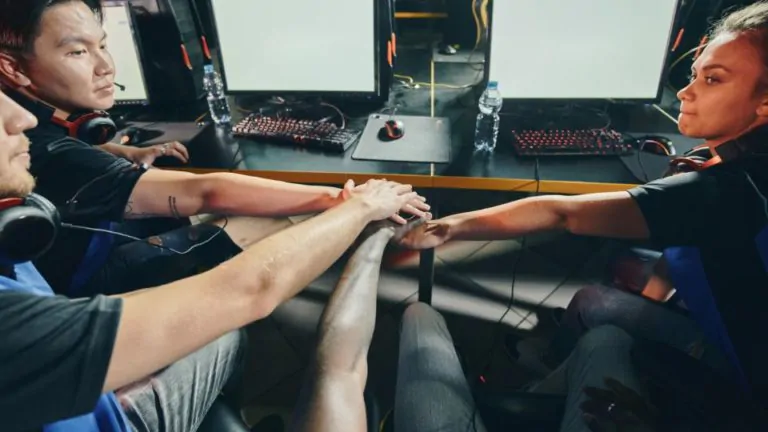Everyone says your freshman year of college is going to be the best year of your life–new friends, a new environment, new things to learn, and I was more than ready to get started. I knew I wanted to go somewhere where I would be forced out of my comfort zone and meet lots of new people and I knew that the University of Michigan was the place where I was going to be able to do this. However, I would have never thought in a million years that I would be faced with an injury my freshman year.
A Strong Start
As a member of the University of Michigan dance team, we are expected to arrive on campus two weeks prior to classes starting to prepare for the season. It is an intense two weeks, especially as a freshman, filled with many new faces, new dance material, and new coaches to impress. Those two weeks were packed with so many nerves, but I made it out alive and with success, securing a spot in both of our competition routines. This was a huge deal as a freshman and I knew I was going to have to work really hard over the year to keep those spots.
School began and our first home game was coming up. This was going to be my mom and sisters first football game in The Big House and the first game that they were going to come see me dance at! Our last practice before that first game though I jumped in the air and landed on my knee wrong, marking the beginning of the end for my freshman year.
My initial injury was ruled as a bone contusion. I could walk the next day and slowly over the next week was feeling ready to dance again. My athletic trainer, being more conservative, wanted me to build back strength and go through some physical therapy before returning to dance. Over the next two months, I worked with him 5 days a week for 2 hours, leaving our sessions dripping in sweat and determination to get back to dance and the spots that were being saved for me in our competition routines.
Related: Rate your Coaches, Facilities, and Campus Visits
My teammates and coaches kept asking if I was better because I could walk and didn't look hurt. This was really hard for me because I wanted to say yes, I am ready. I really wanted to stop looking like this new girl who was milking her injury so that she didn't have to do the hard things in practice. I kept asking my athletic trainer when I could do more, so that I could be that teammate that came back from an injury better than ever, but he kept telling me I needed more time. When our choreographers returned in November, I knew that this was the time to show them, my teammates, and coaches that I was ready to dance and still deserved those spots.
But as I was trying to fully dance again, my knee let out and this was when I knew something was really wrong.
The Setback
Within the next week, I had gotten an MRI and had found out that my ACL was torn, my LCL was sprained, and I still had lots of bruising in my knee. I'll never forget when my phone rang that morning as I was walking into practice and the doctor told me the news. My entire dance career leading up to that point had gone perfectly, and never once did I think that I could get injured. Even after getting the MRI, knowing that something more had to be wrong, an ACL tear had never even crossed my mind. After that morning, I had learned that these past two months of physical therapy, I had been working for basically nothing. My season was over and I was going to need surgery.
Related: Rate the University of Michigan
Let me tell you that surgery is no joke. Never injuring myself prior to my ACL nor ever having surgery made me nervous and anxious because I didn't know what to expect. The morning I woke up from surgery, I remember laying there in silence telling myself not to cry. I could hear people screaming and crying around me and that was really all I wanted to do. At that moment, I thought this experience couldn't get any worse but the next month did–I couldn't walk on my leg, crutching to every class in below freezing temperatures. All of the things I was used to doing in my everyday life I now needed help doing. My teammates and friends would ask me how I was doing and I would put on a brave face saying that “I was well.” On the inside though, I just wanted to scream at them and ask “how does it look like I'm doing???”
Once I was able to begin physical therapy…again…I couldn't even bend my knee. To even try and bend my knee on a stationary bike made me cry. I would leave feeling defeated and like my knee was never going to get better. I truly never thought it was going to be this hard and what made it worse was that I didn't really have many people to lean on because no one was going through what I was experiencing. I continued to go to physical therapy and try to take each day one step at a time. It was definitely easier said than done.
What most individuals hear when doctors talk about ACL recovery timelines is 6-9 months. What they don't hear is how your knee won't really start feeling back to normal until at least a year if not two years after surgery. Because dance isn't a contact sport, I didn't have to worry about clashing with opponents with my new knee, but it is a sport where skills are constantly changing and becoming more complex. While I could begin to do small jumps in physical therapy, my teammates were doing triple turns into a turning leap. Even when I felt like I was getting closer to returning, the skills that I needed were becoming harder and harder.
Feeling Defeated
This is when I hit a little bit of a roadblock in my recovery process: I felt sick and tired of working my butt off in physical therapy just for the finish line to continue moving farther away from me. At this point, I began to hate dance. I was done feeling horrible about my dance abilities and like I was never going to get back to that dancer who had spots in both competition routines. Even as I write this now, I still find myself back at this point sometimes. Injuries are hard and even after you have recovered you still find yourself scared and doubting yourself.
Related: Ouch! 5 Tips for Dealing With Nagging Pain and Minor Injuries as an Athlete
Looking back a year and a half after surgery, I truly am a completely different person. Having something that I have done my entire life ripped away from me in just one phone call has really changed my perspective on how short life and my dance career is. I take in every single moment I have with my teammates and when I dance because who knows when it could be my last. These moments are also times in my life where I am not only growing as an athlete but also as a human being that will one day take everything I have learned from being a part of a team to my future workplace. Until I tore my ACL, I had never realized my worth beyond being a dancer and an athlete because it had always been my entire life. Going through the recovery process allowed me to realize other hobbies and things that I wanted to pursue. I wanted to grow my relationships and connections with people and really begin to think about my future beyond dancing in college.
While there are so many things I wish I could say to individuals who just tore their ACL or are going through the recovery process, it is hard to compare your injury story to others because everyone's story is so different. While I may play a different sport than you or went through a different recovery process, athletes that have been injured are truly different from other athletes. We have experienced setbacks. We have been lost, afraid, confused, and broken all at the same time.
Related: Staff Interview: Injuries, Fitness, and More With JMU Athletic Trainer Leah Schoen
These feelings that come because of injuries are really hard to understand if you haven't gone through it yourself. I am writing this article to tell you that I know how you feel. I know what you are experiencing and I want you to know that you aren't alone. Injured athletes, ACL tears or anything else, are everywhere. We share a bond that not many people cannot relate to and it creates a community of individuals with determination and grit that after going through an injury can really say they can do anything.
Have an idea for a story or a question you need answered? Want to set up an interview with us? Email us at [email protected]
* Originally published on January 12, 2023, by Sydney Borens
